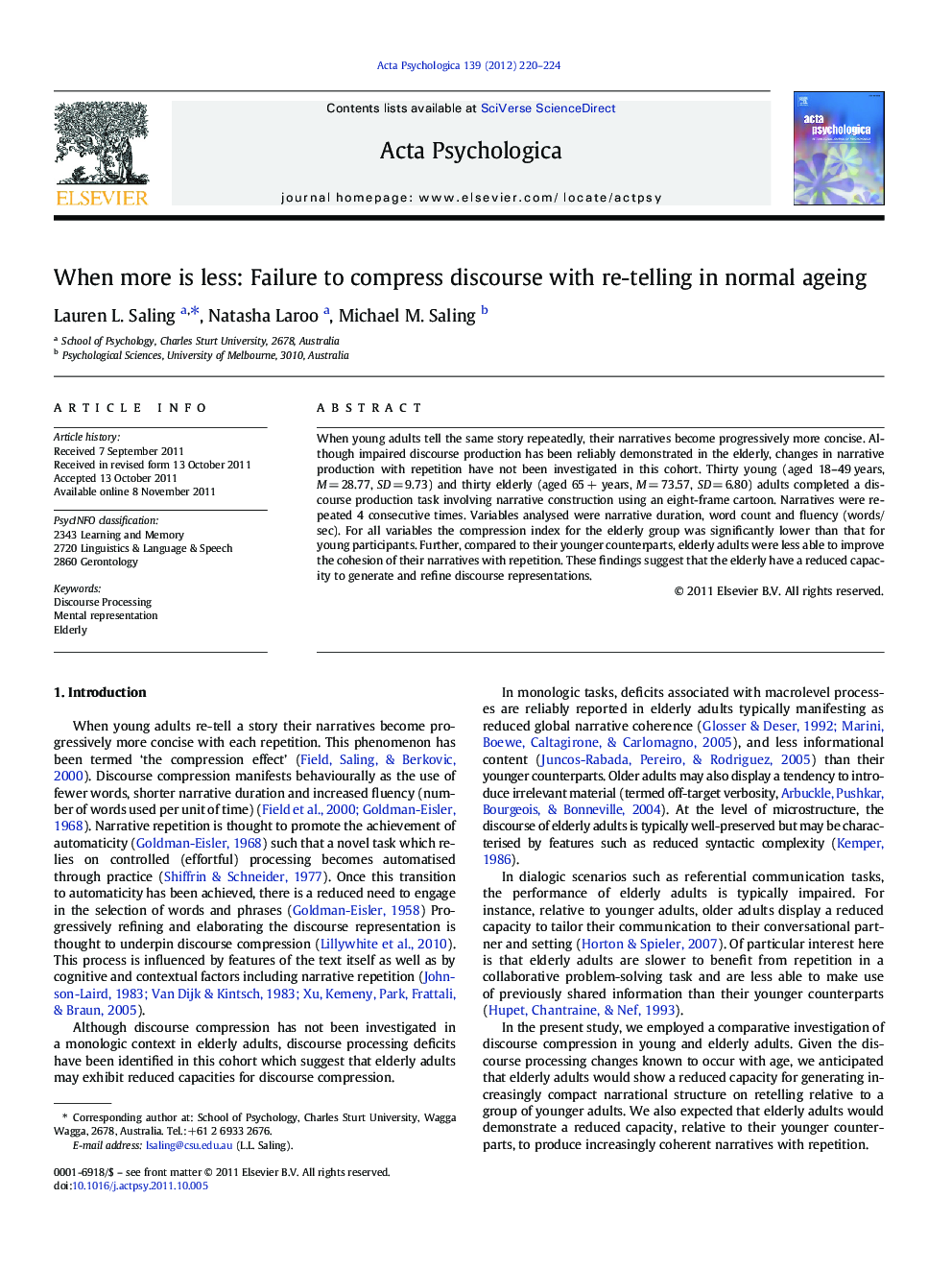| Article ID | Journal | Published Year | Pages | File Type |
|---|---|---|---|---|
| 920110 | Acta Psychologica | 2012 | 5 Pages |
When young adults tell the same story repeatedly, their narratives become progressively more concise. Although impaired discourse production has been reliably demonstrated in the elderly, changes in narrative production with repetition have not been investigated in this cohort. Thirty young (aged 18–49 years, M = 28.77, SD = 9.73) and thirty elderly (aged 65 + years, M = 73.57, SD = 6.80) adults completed a discourse production task involving narrative construction using an eight-frame cartoon. Narratives were repeated 4 consecutive times. Variables analysed were narrative duration, word count and fluency (words/sec). For all variables the compression index for the elderly group was significantly lower than that for young participants. Further, compared to their younger counterparts, elderly adults were less able to improve the cohesion of their narratives with repetition. These findings suggest that the elderly have a reduced capacity to generate and refine discourse representations.
►We compared changes in narratives with repetition in young and elderly adults. ►Young adults produced increasingly concise narratives with repetition. ►Elderly adults were less able to produce increasingly succinct narratives. ►Elderly adults convey less information in their narratives than young adults. ►Narrative cohesion improves with story re-telling in young, but not elderly adults.
